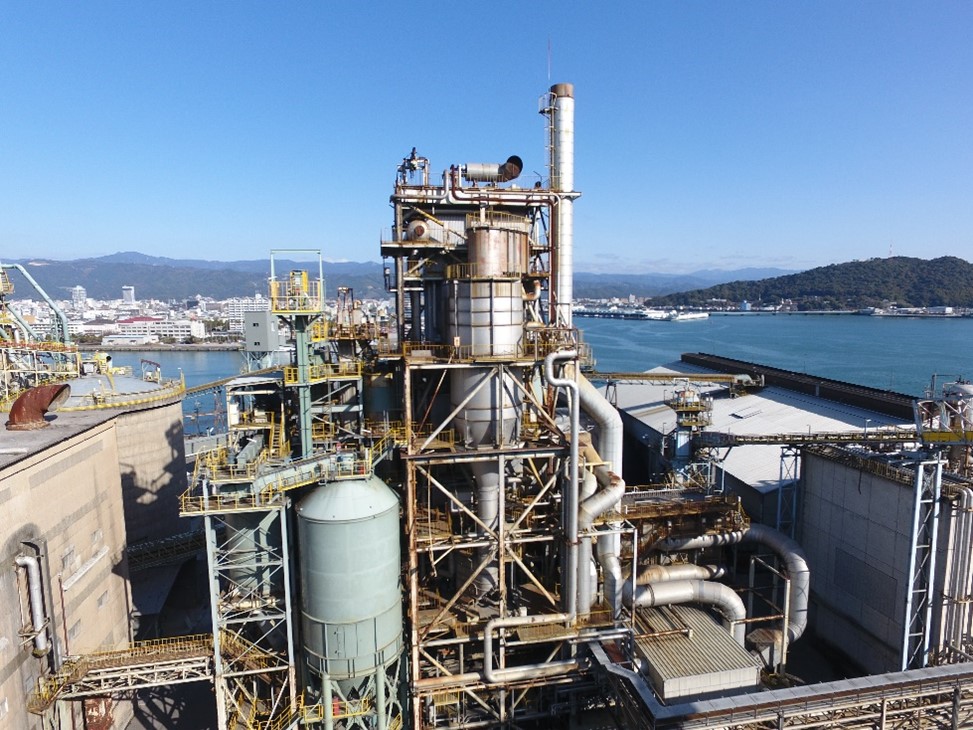Notice of Tosa Biomass Power Plant’s Completion of Procedures for Switching from the FIT System to the FIP System
erex Co., Ltd. (Head Office: Chuo-Ward, Tokyo; Representative Director and President: Hitoshi Honna; hereinafter referred to as “the Company”) is pleased to announce that, as part of its efforts to promote the independence of renewable energy, the Company’s group subsidiary, erex New Energy Co., Ltd., has switched its power plant, Tosa Power Plant, from the FIT system (*1) to the FIP system (*2) and has been certified as follows.
The Company’s group has six power plants in Japan (as of the end of January 2023), including those under development, in the renewable energy business. This is the first time that the Company’s group has gone through procedures to switch from the FIT system to the FIP system.
(*1) Abbreviation for “Feed-in Tariffs”. It is a system under which the government promises that electric power companies purchase electric power generated from renewable energy sources (solar, wind, hydro, geothermal, and biomass) at a fixed price set by the government for a certain period of time.
(*2) Abbreviation for “feed-in premium”. This system is to promote the introduction of renewable energy by adding a certain premium (subsidy) to the selling price of electric power sold on the wholesale market, etc. by renewable energy power generators, not by purchasing electric power at a fixed price like the FIT system.
Note
1. Background of the Initiative
The Company is promoting the stable operation and efficient management of existing facilities as one of the key initiatives of its mid-term business plan, “New Innovation for De-Carbonization,” which is based on achieving both de-carbonization and stable energy supply.
The FIP system is being promoted by the Japanese government as an alternative to the FIT system with the aim of making renewable energy the main power source. The system started to be in operation in April 2022, and power producers are newly required to match their power generation plans with actual power generation results (hereinafter referred to as “planned value balancing”). In addition, the operation is different from the FIT system, as power producers are required to select their own power purchasers.
In order to expand de-carbonization solutions in the electric power business, the Company has been promoting the expansion of CO2-free plans that provide “virtually” renewable electric power by utilizing FIT non-fossil certificates with tracking, as well as the generation of electric power from biomass and other renewable energy sources in Japan and overseas. The Company has applied for certification of the Tosa Power Plant (operating capacity of 20 MW), which had been operating under the FIT system, for transition to the FIP system, and received certification from the Minister of Economy, Trade, and Industry.
In Japan, where energy self-sufficiency is low, renewable energy is expected to expand as one of the main power sources in the future. At the same time, however, it is also important to become a self-sustaining (independent) power source that generates electric power in consideration of the electric power market conditions, such as the balance between supply and demand. The Company is one of the first biomass power plants to adopt the FIP system and will continue to accumulate achievements and experience in operating under the FIP system. Through this initiative, the Company will promote the expansion of renewable energy in line with the growing needs for de-carbonization. The Company will also leverage its strengths as a power generation company to supply renewable energy broadly to the society, with a view to selling renewable energy generated in-house to customers and others. By doing so, the Company will contribute to the realization of a de-carbonized society.
2. Future Power Generation Business
The transition of biomass power plants certified under the FIT system to the FIP system is still limited nationwide, and the Company believes that this is an advanced initiative. The Company will continue to aim for the early establishment of a self-sustaining (independent) renewable energy business structure.
The Company will continue to expand its business to achieve a de-carbonized society.
3. Future Outlook
The impact of this matter on the Company’s consolidated financial results for the fiscal year ending March 31, 2023 is expected to be negligible. The Company will promptly announce any matters that should be publicly disclosed in the future.

Tosa Power Plant (Tosa City, Kochi Prefecture)
